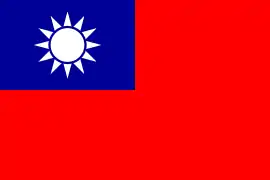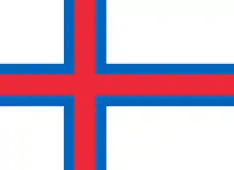International Society for Contemporary Music
The International Society for Contemporary Music (ISCM) is a music organization that promotes contemporary classical music.

The organization was established in Salzburg in 1922 as Internationale Gesellschaft für Neue Musik (IGNM) following the Internationale Kammermusikaufführungen Salzburg, a festival of modern chamber music held as part of the Salzburg Festival.[1] It was founded by the Austrian (later British) composer Egon Wellesz and the Cambridge academic Edward J Dent, who first met when Wellesz visited England in 1906.[2][3]
In 1936 the rival Permanent Council for the International Co-operation of Composers, set up under Richard Strauss, was accused of furthering Nazi Party cultural ambitions in opposition to the non-political ISCM.[4] British composer Herbert Bedford, acting as co-Secretary, defended its neutrality.[5]
Aside from hiatuses in 1940 and 1943-5 due to World War II, the ISCM's core activity has been an annual festival of contemporary classical music held every year at a different location, the first of which took place in 1923 in Salzburg, which has come to be known as the ISCM World Music Days (sometimes World New Music Days, abbreviated either WMD or WNMD depending on which name is used). There have been a total of 92 of these thus far, the most recent of which took place in Tallinn, Estonia in May 2019. The next WMD is scheduled to take place in New Zealand in April 2020.[6]
Each year, during the World Music Days. ISCM members also convene in a General Assembly. Membership in the ISCM is organized through national sections that promote contemporary music in each country. These sections are usually organizations independent from the ISCM that send delegates to the ISCM General Assembly. Each member of the national section is also a member of ISCM and may send in 6 works that are evaluated for performance at the World Music Days. National organizations that promote contemporary music, but have not been designated as the nation section of ISCM, are sometimes given an associate membership status. This status also applies to the members of these organizations. Some individual music professionals receive the "honorary membership" status. The ISCM is governed by an Executive Committee consisting of seven people; two (Secretary General and Treasurer) are appointed positions and the remaining five (President, Vice President, and three regular members) are chosen from and by the delegates in an election during the General Assembly.[7]
Since 1991, the ISCM has also published an annual World New Music Magazine, a print publication that is distributed to its members for further dissemination. A total of 28 issues have been produced. The magazine issues from 2006-2018 are available as a digital downloadable PDF from the ISCM's website.[8] ISCM is a member of the International Music Council.
Specific renditions
National sections
Africa
 EECMS
EECMS NewMusicSA
NewMusicSA
Asia
 China
China
 The Israeli Composers' League
The Israeli Composers' League ISCM – Israeli Section
ISCM – Israeli Section ISCM – JAPANESE SECTION
ISCM – JAPANESE SECTION Japan Federation of Composers
Japan Federation of Composers ISCM – SOUTH KOREAN SECTION
ISCM – SOUTH KOREAN SECTION Tongyeong International Music Festival
Tongyeong International Music Festival ISCM – Taiwan Section
ISCM – Taiwan Section ISCM – TURKEY SECTION
ISCM – TURKEY SECTION
Eastern Europe
 Prague Spring Festival
Prague Spring Festival ISCM – HUNGARIAN SECTION
ISCM – HUNGARIAN SECTION ISCM – POLISH SECTION
ISCM – POLISH SECTION Romanian National Section of the International Society for Contemporary Music
Romanian National Section of the International Society for Contemporary Music ISCM – RUSSIAN SECTION
ISCM – RUSSIAN SECTION Society for Contemporary Music Russia
Society for Contemporary Music Russia ISCM – SLOVAK SECTION
ISCM – SLOVAK SECTION Music Centre Slovakia
Music Centre Slovakia ISCM – SLOVENIAN SECTION
ISCM – SLOVENIAN SECTION ISCM – UKRAINE SECTION
ISCM – UKRAINE SECTION
Northern Europe
 ISCM – DANISH SECTION
ISCM – DANISH SECTION ISCM – ESTONIAN SECTION
ISCM – ESTONIAN SECTION ISCM – FAROE ISLANDS SECTION
ISCM – FAROE ISLANDS SECTION ISCM – FINNISH SECTION
ISCM – FINNISH SECTION ISCM – ICELANDIC SECTION
ISCM – ICELANDIC SECTION Association of Irish Composers
Association of Irish Composers ISCM – LATVIAN SECTION
ISCM – LATVIAN SECTION ISCM – LITHUANIAN SECTION
ISCM – LITHUANIAN SECTION ISCM – NORWEGIAN SECTION
ISCM – NORWEGIAN SECTION ISCM – SWEDISH SECTION
ISCM – SWEDISH SECTION
- ISCM – GOTLAND SECTION
 Society for the Promotion of New Music
Society for the Promotion of New Music ISCM – BRITISH SECTION
ISCM – BRITISH SECTION
Southern Europe
Western Europe
North America
.svg.png.webp) Canadian League of Composers Music on Main, Vancouver
Canadian League of Composers Music on Main, Vancouver League of Composers
League of Composers ISCM – USA SECTION
ISCM – USA SECTION SectionNew Music USA
SectionNew Music USA Roger Shapiro Fund for New Music
Roger Shapiro Fund for New Music Stephen F. Austin State University
Stephen F. Austin State University Florida International University
Florida International University
References
- "archives.nypl.org -- League of Composers/ISCM records". Archives.nypl.org. Retrieved 24 May 2018.
- Fauser, AnneGret. 'The Scholar behind the Medal: Edward J. Dent (1876-1957) and the Politics of Music History', in Journal of the Royal Musical Association Vol. 139, No. 2 (2014), pp. 235-260
- Haas, Michael. 'Egon Wellesz: The Forgotten Modernist', in Forbidden Music, 4 June 2014
- Fanning, David (ed.). The Routledge Handbook to Music under German Occupation, 1938-1945
- Bedford, Herbert. Letter to The Musical Times, February 1936, p 159
- "ISCM World Music Days 2020 in NZ". sounz.org.nz. Retrieved 28 May 2019.
- "Archived copy". Archived from the original on 2016-01-07. Retrieved 2016-04-08.CS1 maint: archived copy as title (link)
- ISCM (24 May 2018). "World New Music Magazine". Iscm.org. Retrieved 30 June 2020.